Search
Did you mean: Oxus?
Search Results

Definition
Roman Gaul
Roman Gaul is an umbrella term for several Roman provinces in western Europe: Cisalpine Gaul or Gallia Cisalpina, comprised a territory situated in the northernmost part of the Italian peninsula ranging from the Apennines in the west northward...
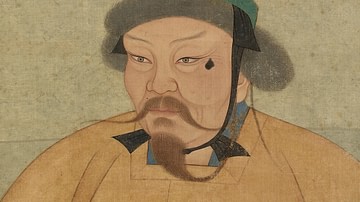
Definition
Ögedei Khan
Ogedei Khan (aka Ogodei) ruled the Mongol Empire from 1229 to 1241. He was the third son of Genghis Khan (r. 1206-1227), the empire's founder. Ogedei's accomplishments included creating a new capital at Karakorum, establishing a system of...

Definition
Emperor Xuanzong of Tang
Xuanzong (birth name, Li Longji, l. 685-762 CE, r. 712-756 CE) was the 7th emperor of the Tang Dynasty of China, whose domestic and foreign policies established the Tang Dynasty as the Golden Age in Chinese history. Many of the most important...
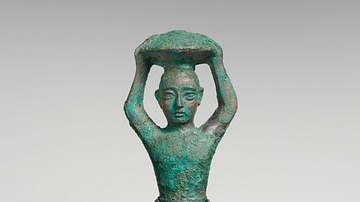
Definition
Shulgi of Ur
Shulgi of Ur (r. 2029-1982 BCE) is considered the greatest king of the Ur III Period in Mesopotamia (2047-1750 BCE). His father was Ur-Nammu (r.2047-2030 BCE), who founded the Third Dynasty of Ur, and his mother was a daughter of King Utu-Hegal...
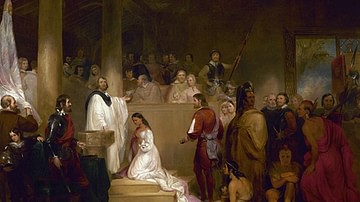
Definition
John Rolfe
John Rolfe (l. 1585-1622 CE) was an English merchant and colonist of Jamestown best known as the husband of Pocahontas (l. c. 1596-1617 CE). He is also known, however, for his successful cultivation of tobacco in Virginia which established...
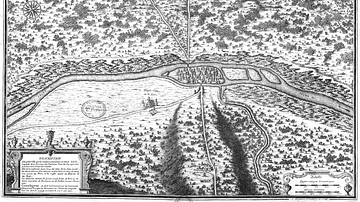
Definition
Lutetia
Lutetia Parisiorum was the capital of the Parisii, a tribe in ancient Gaul. The Parisii were a tribe on the Middle Seine, and Lutetia ("place near a swamp") was one of their main settlements. It was on the south bank of the river. In 53 BCE...

Definition
Parthian Culture
Stretching between China and India in the east to the Mediterranean in the west, Parthia ruled over one of the widest expanses of empire in its time and Parthian culture flourished for 500 years (247 BCE to 224 CE). While known for their...
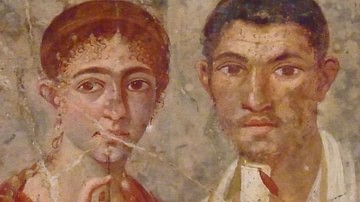
Article
Ancient Roman Society
Rome began as a small city on the banks of the Tiber River in Italy. The Latin tribes (also known as the Latini or Latians) inhabited the region c. 1000 BCE but the founding of the city is dated to 753 BCE. The family was the center and foundation...
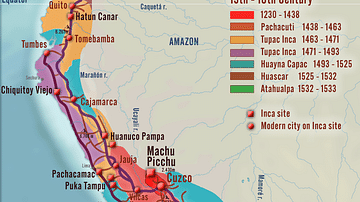
Article
Pizarro & the Fall of the Inca Empire
In 1533 CE the Inca Empire was the largest in the world. It extended across western South America from Quito in the north to Santiago in the south. However, the lack of integration of conquered peoples into that empire, combined with a civil...

Article
Battle of Smolensk in 1941
The Battle of Smolensk in 1941 ended in victory for Nazi Germany and its Axis allies against the USSR's Red Army during Operation Barbarossa in the Second World War (1939-45). Smolensk on the Dnieper (Dnepr/Dnipro) river was the traditional...